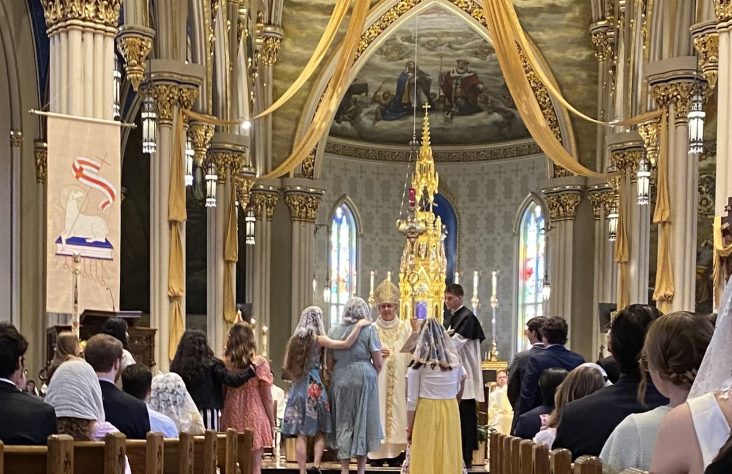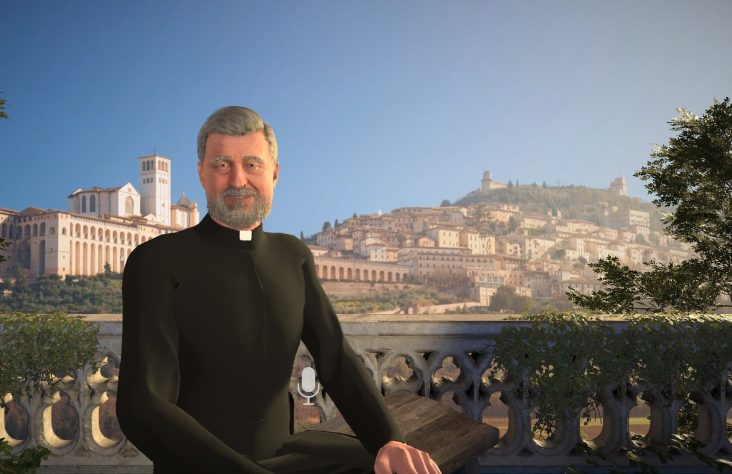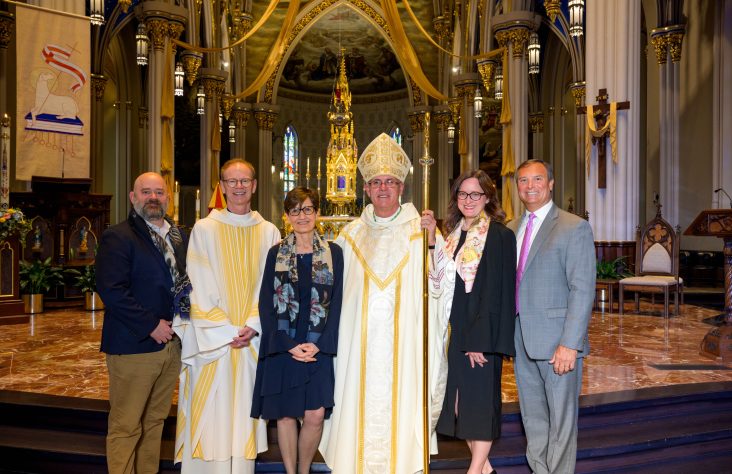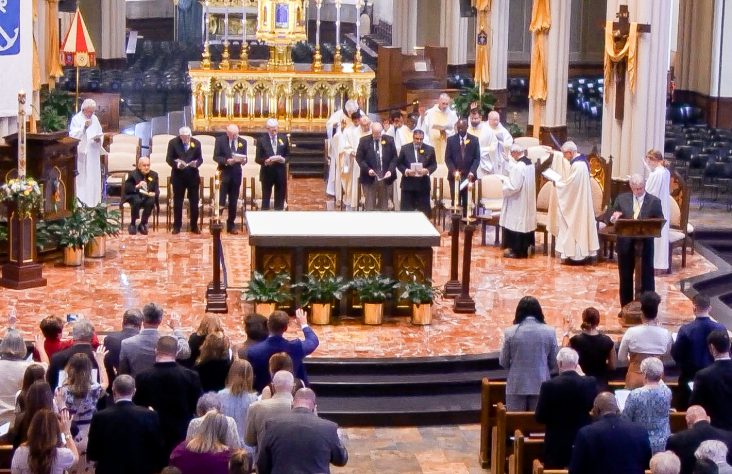November 21, 2023 // National
USCCB President on Pope Francis, the U.S. Church, and More
BALTIMORE (OSV News) – Archbishop Timothy P. Broglio of the Archdiocese for the Military Services is just beginning his second year of his three-year term as president of the U.S. Conference of Catholic Bishops. He sat down with OSV News during a break at the fall general assembly of bishops in Baltimore on Wednesday, November 15, to answer questions about his relationship with Pope Francis, the pope’s comments on the American Church, and more. The interview has been edited for length and clarity.

Archbishop Timothy P. Broglio of the U.S. Archdiocese for the Military Services, president of the U.S. Conference of Catholic Bishops, speaks during a news conference at a Nov. 14, 2023, session of the bishops’ fall general assembly in Baltimore. (OSV News photo/Bob Roller)
OSV News: You said last year that you wanted to continue the good work of Archbishop José H. Gomez to foster unity in the Church. What continue to be the issues that most divide, and how do you see a path forward?
Archbishop Timothy Broglio: I think there are always questions that, just from the difference in the way people approach things, that can be a source of division. Although I noticed certainly in these two days of public session – if you look at the votes, and especially the votes for questions that are “yes” or “no” – they’ve been overwhelmingly one way or another. So, I think that’s indicative of a certain unity of thought. And the other thing that I think is very striking: With few exceptions, all of the votes for the candidates for the different offices were all very close to one another. So, it’s not as if there’s tremendous lopsided feelings in the conference. I think that’s a positive sign going forward.
I think there’s always going to be a difference in approach between issues like the role of the dignity of the human person and how that’s interpreted – from protection of the infant in the womb to social issues. That’s always going to be, you know, where do you put the emphasis? How do you emphasize both at the same time? And I think that’s always going to be a source of concern, or a possible source of division, or at least a divergence in how people approach questions.
OSV News: Some were claiming in the media last year that you were anti-Pope Francis, which you balked at. Given your last year of working more closely with the Holy Father, could you comment a little bit about what that working relationship has been like?
Archbishop Broglio: Of course, I saw him right after the election because there was a meeting … on the continental phase of the synod preparations, and so I had an opportunity to be with him. And he was actually very encouraging. He right away said – you know, we spoke to one another in Spanish – that, oh, you know, you have a big job now in addition to the big job you already had. He told me not to lose heart, and in that sense he was very encouraging.
Now, when we went in April – you know, the president always has an audience with the pope – he was very attentive to the questions that we raised. Obviously I don’t want to get into specifics, but he spent almost an hour with us, which certainly was extremely generous on his part. And he was very receptive to anything that we wanted to talk to him about. He let us really lead the dialogue, and then he would respond to the different issues about the synod and the North American continental phase, which had been completed by that time, and it was a very positive exchange. So, I think the myth of us being somehow on opposite sides of the spectrum is … a myth.
OSV News: There is an underlying critique among some American Catholics that Pope Francis doesn’t understand Catholics in the U.S. Do you think there’s any merit to that, and could you elaborate on what that might really mean, in your experience with dealing with him?
Archbishop Broglio: I think Pope Francis is certainly one who’s always open to listening to others. That’s always amazing. The amount of time that he’ll give to audiences, I think, that’s certainly been a hallmark of his pontificate – and I have plenty of experience on which to base that statement. But let’s remember Pope Francis’ only experience (outside South America) until he became Bishop of Rome was that he lived for three years in Germany. Otherwise, his whole experience is Argentinian. You can’t expect him to have an experience or an experiential view of different places. Argentina, in one sense, is a country very much like the United States. There are many, many possibilities. They just haven’t been developed in the same way they have been here in the United States. So, I think all of those are factors that would color his vision and also his understanding even of the Church in a different reality.
I believe the first time he ever came to the United States was when he came here on his, thus far, one and only papal visit here. And, you know, even if you went to a few places, the United States is a big country. You’re not going to discover it in five days. So, I think those are all factors that might lead people to say that he doesn’t know the United States or he doesn’t know the Church in the United States. But I think he’s very open to learning about it. And, I think that’s something that has to be perhaps emphasized.
OSV News: You recently returned from a month in Rome with the synod on synodality. … What do you think that you learned from that experience that you think might be worthy of consideration for applying to the conference?
Archbishop Broglio: We do pray together, but I think the intentional invocation of the Holy Spirit was an important factor in the synod gatherings. And I think that might be something we can, at least in our smaller group meetings, we can certainly do that. I’m also excited about the new strategic planning process, which is based on mission. And I think we’ve just approved something that’s much more flexible than the model we had before that. And so I think it is more synodal, and I think that will be something that will make a difference in how we address issues and concerns of the church in the United States in a different way, in a new way.
Michael R. Heinlein writes for OSV News from Indiana. He was in Baltimore for the U.S. Catholic bishops’ November 13-16 fall plenary assembly.
The best news. Delivered to your inbox.
Subscribe to our mailing list today.






